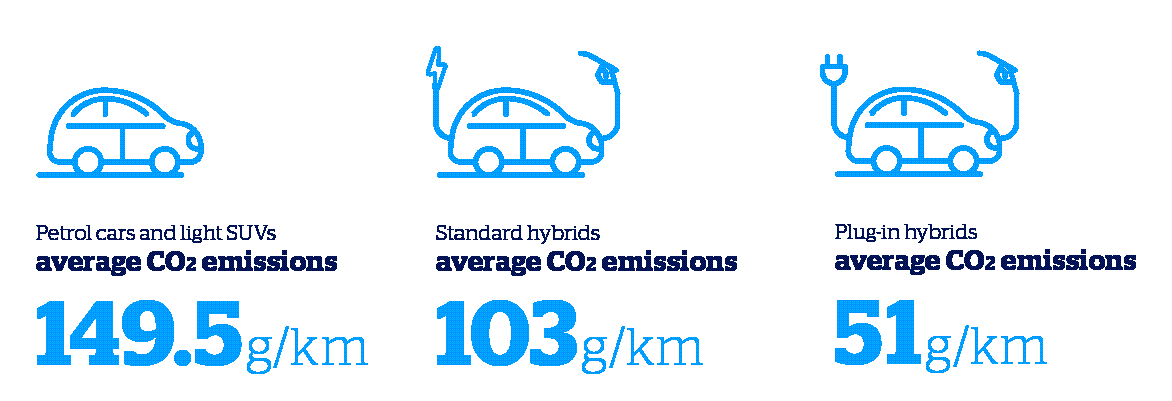The decision to purchase a vehicle involves more than just the initial price tag—it’s an investment in long-term savings and sustainability. Hybrid cars have gained popularity due to their promise of reduced fuel costs, environmental benefits, and lower maintenance expenses over time. While the upfront cost may be higher than traditional vehicles, owning a hybrid offers numerous financial advantages in the long run.
This article explores how hybrids can save you money, from fuel efficiency to tax incentives, helping you make an informed decision about your next vehicle purchase.
1. Reduced Fuel Expenses: Maximizing Efficiency

Hybrid vehicles excel in fuel efficiency, making them a cost-effective choice for drivers looking to save money at the pump.
- Dual Powertrain Advantage: By combining an internal combustion engine with an electric motor, hybrids optimize fuel usage, particularly during stop-and-go traffic.
- Impressive Mileage: Many hybrids, such as the Toyota Prius and Hyundai Ioniq, achieve over 50 miles per gallon, significantly reducing fuel expenses.
- City and Highway Savings: Urban drivers benefit the most, as hybrids often switch to electric mode during low-speed driving, cutting fuel consumption drastically.
Over the lifespan of the vehicle, these savings can amount to thousands of dollars, offsetting the higher initial purchase cost.
2. Lower Maintenance Costs: Durability and Innovation
One of the lesser-known advantages of hybrids is their lower maintenance requirements compared to conventional gasoline-powered vehicles.

- Brake Longevity: Regenerative braking systems in hybrids reduce wear and tear on traditional brake components, extending their lifespan.
- Engine Preservation: Since hybrid vehicles rely on electric motors for a significant portion of their operation, the internal combustion engine experiences less strain, resulting in fewer breakdowns.
- Battery Technology: Modern hybrid batteries are designed for durability, often lasting as long as the vehicle itself, alleviating concerns about frequent replacements.
While some repairs may involve specialized parts, the overall reduction in maintenance needs contributes to significant long-term savings.
3. Tax Incentives and Financial Perks
Governments worldwide encourage eco-friendly transportation by offering financial incentives to hybrid car owners.

- Tax Credits: Many countries provide tax breaks or credits for purchasing hybrid vehicles, making them more affordable.
- Lower Registration Fees: In some regions, hybrids qualify for reduced registration costs, adding to the financial benefits.
- HOV Lane Access: Certain states and countries allow hybrid owners to use high-occupancy vehicle (HOV) lanes, saving time and fuel during commutes.
These perks not only make hybrids more appealing but also enhance their overall cost-effectiveness.
4. Resale Value: Retaining Worth Over Time
Hybrid cars often maintain their value better than traditional vehicles, offering another avenue for financial gain.

- Growing Demand: As awareness of environmental issues increases, the demand for used hybrids continues to rise, keeping resale values high.
- Technological Relevance: Hybrids equipped with modern features like regenerative braking and energy-efficient engines appeal to future buyers.
- Dependability: The reputation of hybrids for reliability further boosts their resale potential, ensuring owners recoup more of their investment.
This strong resale value contributes to the long-term financial benefits of owning a hybrid vehicle.
5. Environmental Impact: Saving Money While Protecting the Planet

Beyond personal savings, owning a hybrid car benefits the planet, aligning with the growing trend toward sustainable living.
- Reduced Emissions: Hybrids emit significantly less CO2 than traditional cars, contributing to cleaner air and healthier communities.
- Fuel Independence: By using less gasoline, hybrids reduce dependence on fossil fuels, helping stabilize energy costs over time.
- Energy Efficiency: Advanced hybrid systems maximize energy use, ensuring minimal waste and promoting eco-conscious driving habits.

By choosing a hybrid, you’re not just saving money—you’re investing in a greener future.
Conclusion
The long-term cost benefits of owning a hybrid car are undeniable, spanning fuel savings, reduced maintenance, tax incentives, and higher resale value. While the upfront investment may seem steep, the financial rewards over the years make hybrids a smart choice for budget-conscious and eco-friendly drivers alike.
Are you considering a hybrid for your next vehicle? Share your thoughts or experiences in the comments below! Visit our website for more insights and expert advice on hybrid cars and sustainable driving solutions. Let’s pave the road to a smarter, greener future together!

Leave a Reply